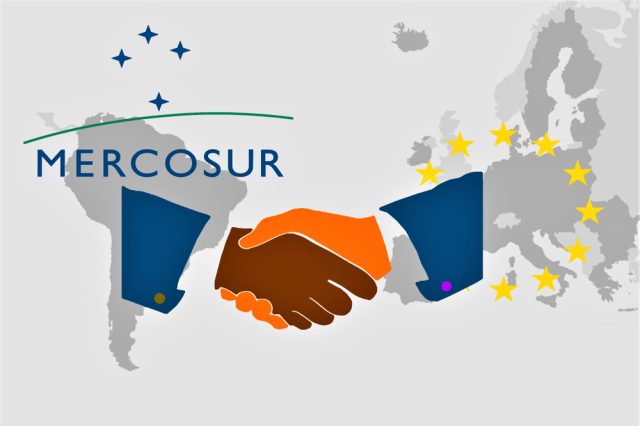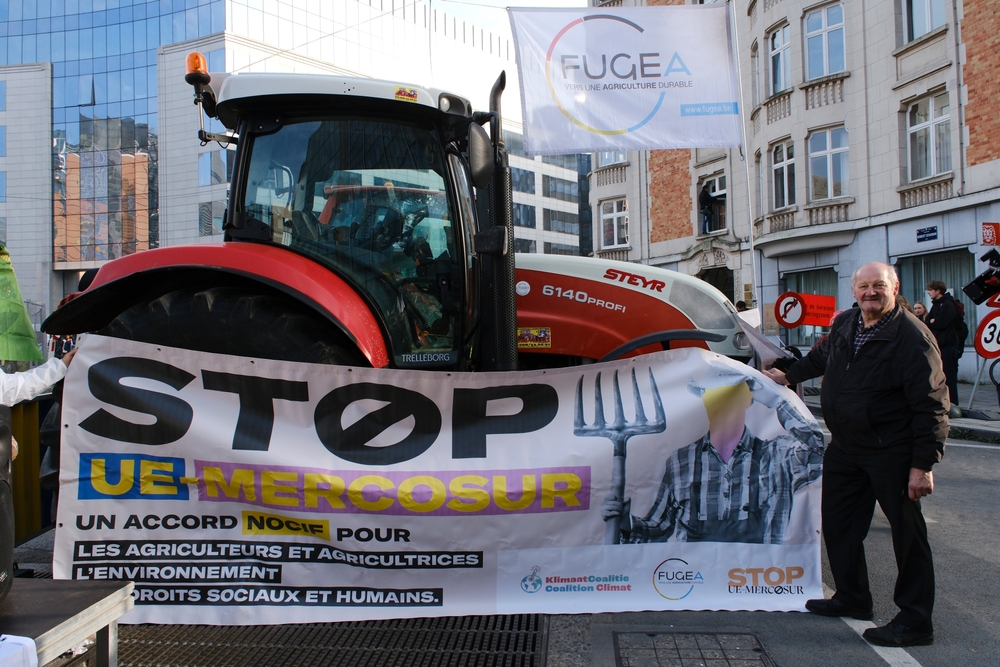
Kako se mijenjaju globalni odnosi s Južnom Amerikom
Mercosur, južno zajedničko tržište, ključni je ekonomski i politički blok u Južnoj Americi. Osnovan od strane Brazila, Argentine, Paragvaja i Urugvaja, predstavlja hrabar eksperiment u regionalnoj integraciji s ciljem stvaranja jedinstvenog gospodarskog prostora. Uz više od 30 godina razvoja od potpisivanja Ugovora iz Asuncióna, Mercosur je evoluirao u ključnog igrača u nastojanju Latinske Amerike za većom geopolitičkom važnošću i gospodarskom konkurentnošću. Njegova je vizija jasna: izgraditi zajedničko tržište koje smanjuje unutarnje trgovinske prepreke, promiče zajednički rast i jača globalni utjecaj svojih država članica. Međutim, ovaj ambiciozni projekt suočava se sa značajnim izazovima. Ekonomske razlike među zemljama članicama, politička nestabilnost i vanjski pritisci zahtijevaju stalno balansiranje i dugoročni strateški pristup.
Ekonomska i politička ambicija
Primarni cilj Mercosura nije samo liberalizacija trgovine, već uspostava zajedničkog ekonomskog identiteta. Unija nastoji eliminirati carine, uskladiti trgovinske propise i usvojiti Zajedničku vanjsku carinu (CET) kako bi se zajednički uključili u međunarodne trgovinske pregovore. Ovaj napor da se govori jednim glasom na globalnoj pozornici je od ključne važnosti, posebno jer se konkurencija iz drugih regionalnih trgovinskih blokova pojačava. Štoviše, Mercosur nastoji ići dalje od ekonomije, težeći socijalnoj pravdi i ekološkoj održivosti. Na kontinentu koji muči izrazita nejednakost – gdje ogromni prirodni resursi koegzistiraju sa siromaštvom i nerazvijenošću – ovaj cilj je i ambiciozan i neophodan. Usredotočenost bloka na smanjenje razlika, poboljšanje infrastrukture i poticanje ljudskog razvoja odražava njegovu predanost izgradnji pravednije budućnosti za svoje građane. Od samita u Cordobi 2006. Mercosur je u svoj program uključio društvene i ekološke ciljeve. Prepoznaje da gospodarski rast mora biti uparen s poboljšanim životnim standardom i brigom o okolišu. Ovaj dvostruki fokus postao je još kritičniji kako se regija bori s izazovima poput krčenja šuma, urbanog siromaštva i nejednakosti.
The EU-Mercosur Agreement: A Milestone in the Making
One of the most significant developments in Mercosur’s history is its ongoing negotiations with the European Union. The proposed EU-Mercosur trade agreement could transform global trade dynamics by creating one of the largest free trade zones in the world. For the EU, the deal offers access to a market of over 270 million consumers, while for Mercosur, it provides opportunities to attract foreign investment, modernize industries, and integrate more deeply into global value chains.
 However, the agreement has sparked heated debates, particularly in countries like Italy, where agriculture plays a crucial role in the economy. Italian farmers and producers fear that low-cost imports from South America could threaten the competitiveness of high-quality, artisanal products. The Italian government, led by Prime Minister Giorgia Meloni (FdI, ECR), has taken a balanced approach. While acknowledging the strategic importance of the agreement, Meloni has emphasized the need to protect Italy’s agricultural excellence and ensure fair competition. “The EU-Mercosur deal represents an opportunity, but it must come with guarantees,” Meloni stated. “Italy will not compromise on the quality and safety of our products. Any agreement must protect our farmers and uphold the high standards that define Made in Italy.” To this end, the Italian government has called for rigorous quality controls, clear labeling, and mechanisms to shield sensitive sectors from unfair competition. At the same time, Meloni sees the potential for Italy to play a leading role in fostering stronger ties between Europe and South America. With millions of Italian descendants living in countries like Argentina and Brazil, there is a unique cultural and historical bond that can serve as a foundation for deeper economic and diplomatic cooperation.
However, the agreement has sparked heated debates, particularly in countries like Italy, where agriculture plays a crucial role in the economy. Italian farmers and producers fear that low-cost imports from South America could threaten the competitiveness of high-quality, artisanal products. The Italian government, led by Prime Minister Giorgia Meloni (FdI, ECR), has taken a balanced approach. While acknowledging the strategic importance of the agreement, Meloni has emphasized the need to protect Italy’s agricultural excellence and ensure fair competition. “The EU-Mercosur deal represents an opportunity, but it must come with guarantees,” Meloni stated. “Italy will not compromise on the quality and safety of our products. Any agreement must protect our farmers and uphold the high standards that define Made in Italy.” To this end, the Italian government has called for rigorous quality controls, clear labeling, and mechanisms to shield sensitive sectors from unfair competition. At the same time, Meloni sees the potential for Italy to play a leading role in fostering stronger ties between Europe and South America. With millions of Italian descendants living in countries like Argentina and Brazil, there is a unique cultural and historical bond that can serve as a foundation for deeper economic and diplomatic cooperation.
Sustainability at the Core of Mercosur’s Agenda
A critical dimension of Mercosur’s strategy is its commitment to sustainable development. The bloc recognizes that South America’s abundant natural resources, including the Amazon rainforest and the Pantanal wetlands, are not merely assets to exploit but treasures to preserve. Balancing economic growth with environmental protection is essential, especially as global attention turns to issues like climate change and biodiversity loss. Mercosur has adopted policies to promote green technologies, support local communities, and encourage sustainable agricultural practices. For example, the bloc has implemented certification systems to ensure that exports, particularly in agriculture, meet high environmental standards. These efforts not only enhance Mercosur’s global reputation but also create new opportunities for businesses in sectors like renewable energy and eco-tourism. However, challenges remain. The region’s dependence on agriculture, particularly livestock farming, has led to deforestation and environmental degradation. Brazil, as a leading exporter of beef, faces international scrutiny for the illegal clearing of land in the Amazon. Addressing these issues requires robust enforcement of environmental regulations and greater international cooperation. The EU-Mercosur agreement could serve as a platform for advancing sustainable development. By linking trade to environmental standards, the EU can incentivize Mercosur members to adopt greener practices. This partnership has the potential to create a model of economic growth that is both inclusive and environmentally responsible.
Geopolitical Implications of Mercosur
Mercosur’s evolution is not just an economic story—it is also a geopolitical one. The bloc has the potential to strengthen South America’s position in a multipolar world, but its success depends on the political stability and unity of its members. Argentina, under the leadership of Javier Milei, has taken a decisive turn toward conservatism, signaling a shift away from alliances like the BRICS. This move aligns more closely with the interests of Western powers, including the United States and the EU. Meanwhile, Brazil, led by President Lula (PT, S&D), has deepened ties with China and Russia, reflecting its longstanding role as a member of the BRICS. Paraguay and Uruguay also exhibit divergent political trajectories, making it challenging to maintain cohesion within the bloc. For the EU, Mercosur represents both an opportunity and a challenge. On one hand, engaging with Mercosur can help Europe diversify its trade partnerships and reduce dependence on unstable supply chains. On the other, it requires navigating the complex political landscape of South America, where ideological differences and external influences complicate decision-making.
Italy’s Role in Shaping the Future of Mercosur
Italy is uniquely positioned to influence the future of EU-Mercosur relations. As a country with strong historical and cultural ties to South America, Italy can act as a bridge between the two regions. Prime Minister Giorgia Meloni has emphasized the importance of leveraging these connections to promote economic cooperation and cultural exchange. Italy’s small and medium-sized enterprises (SMEs) stand to benefit significantly from the Mercosur agreement. The bloc’s focus on reducing trade barriers and fostering innovation creates new opportunities for Italian businesses to expand into a rapidly growing market. By supporting SMEs in accessing South American markets, Italy can strengthen its economic ties with Mercosur while promoting sustainable development and fair competition. At the same time, Meloni has stressed the need to address the challenges posed by the agreement. Protecting Italy’s agricultural sector, which is a cornerstone of its economy and cultural identity, remains a top priority. The government has proposed measures to ensure that Italian farmers can compete on a level playing field, including subsidies, trade safeguards, and investment in innovation.
A Shared Vision for the Future
Mercosur’s journey reflects a broader narrative of integration, resilience, and ambition. It demonstrates that regional cooperation is not only possible but necessary in an increasingly interconnected world. For South America, Mercosur offers a path to greater economic self-reliance and global relevance. For Europe, it provides a valuable partner in advancing shared goals, from trade and sustainability to cultural exchange. The EU-Mercosur agreement, if implemented thoughtfully, could set a new standard for international cooperation. It has the potential to foster inclusive growth, protect the environment, and create opportunities for businesses and communities on both sides of the Atlantic. However, achieving these goals requires careful negotiation, strong leadership, and a commitment to shared values. Italy, under the leadership of Giorgia Meloni, is well-positioned to play a pivotal role in this process. By balancing pragmatism with ambition, Italy can help shape a partnership that benefits both Europe and South America while safeguarding its own economic and cultural interests. As the global landscape continues to evolve, Mercosur stands as a testament to the power of collaboration in building a more prosperous and sustainable future.



 Subscribe
Subscribe